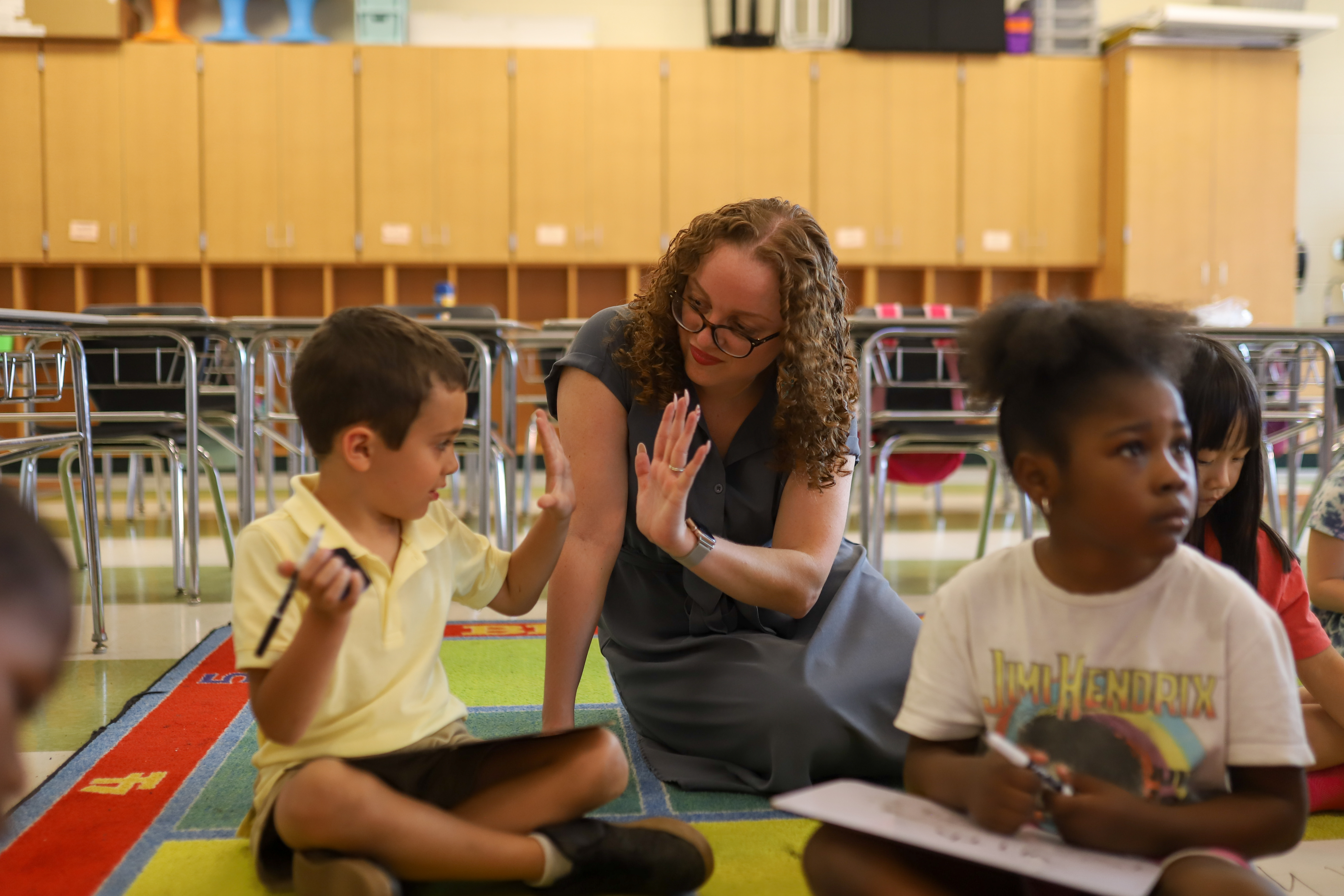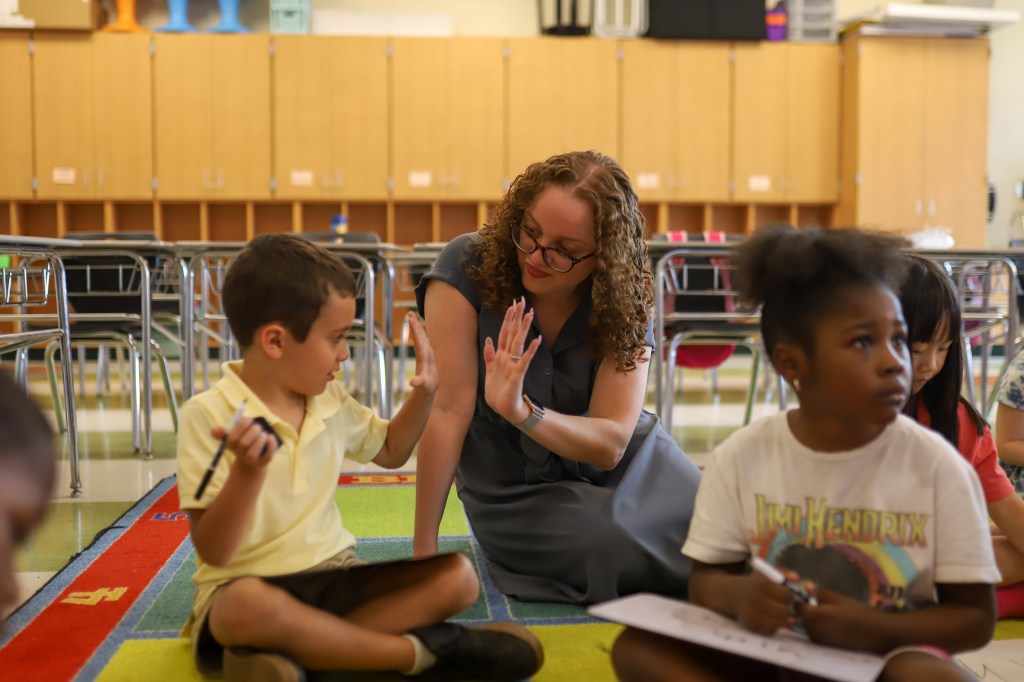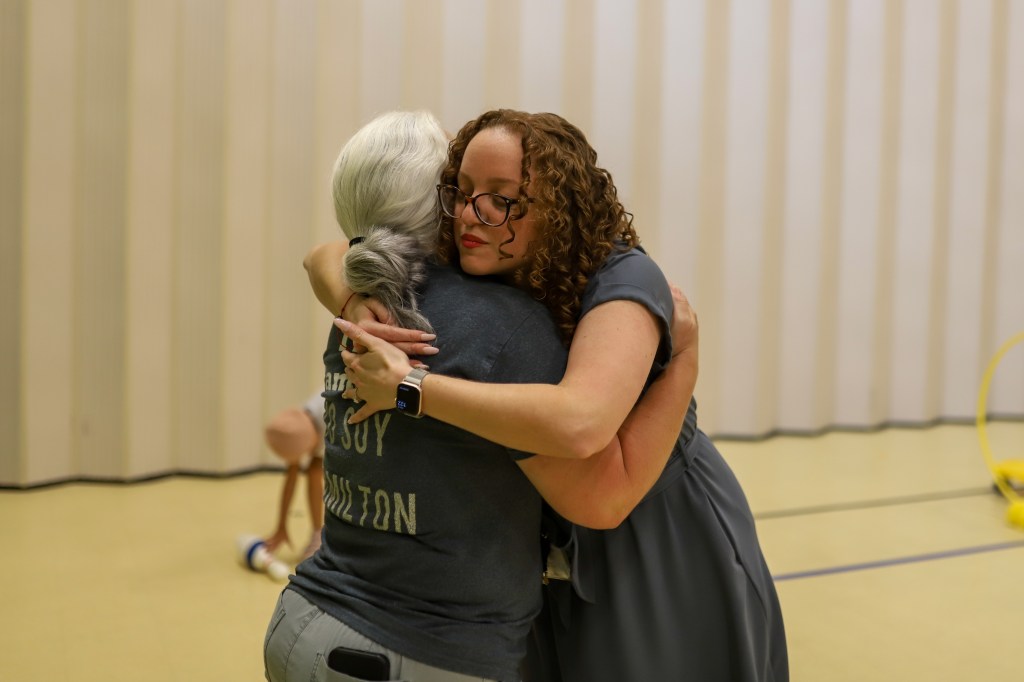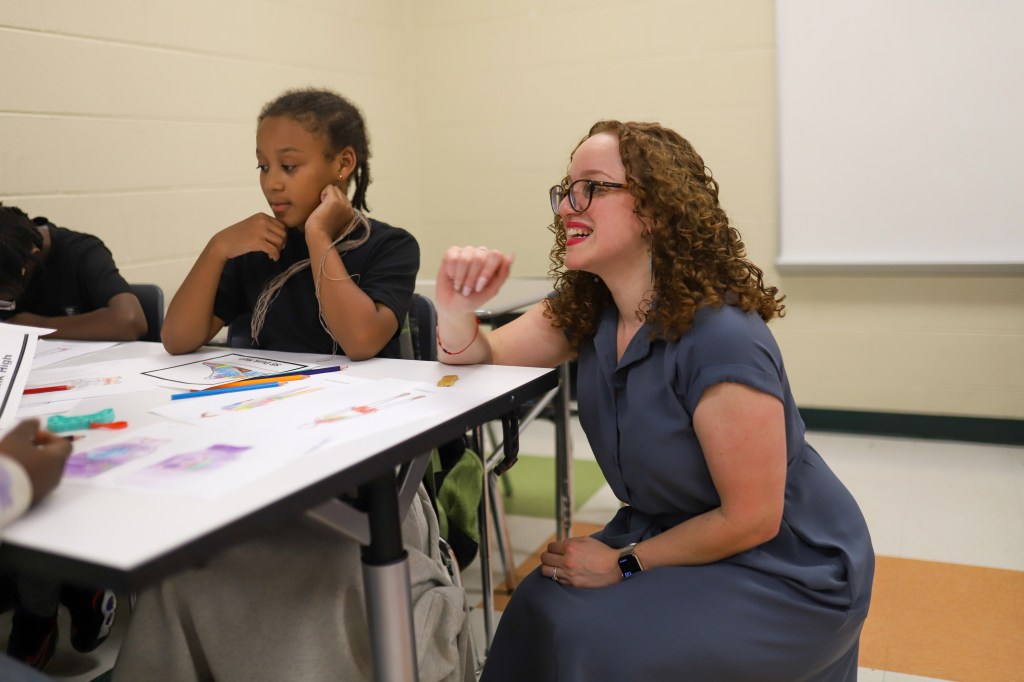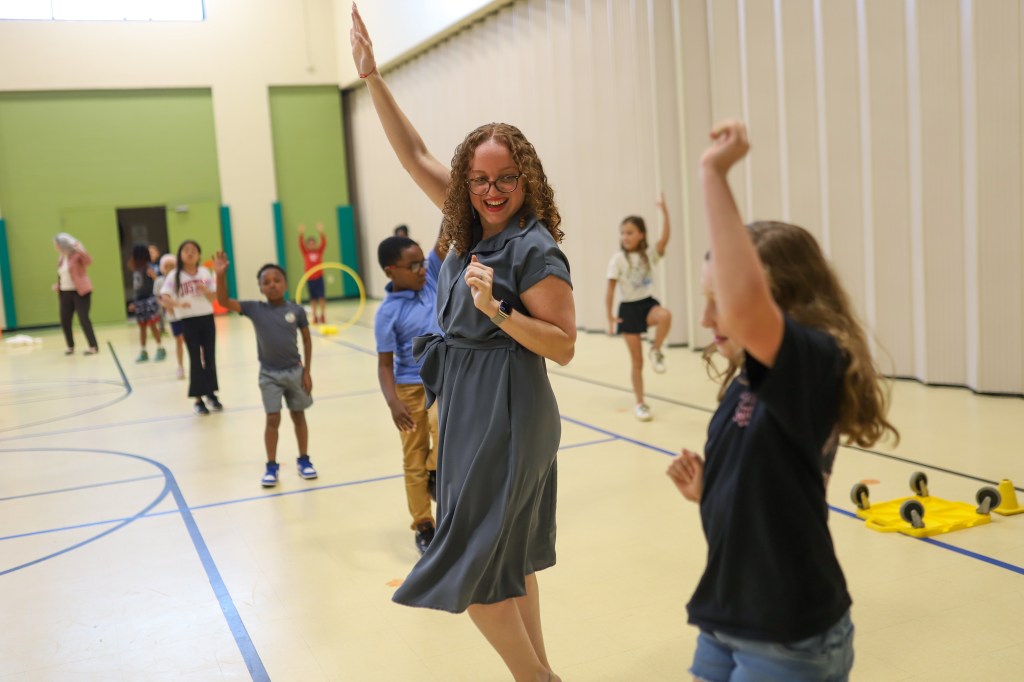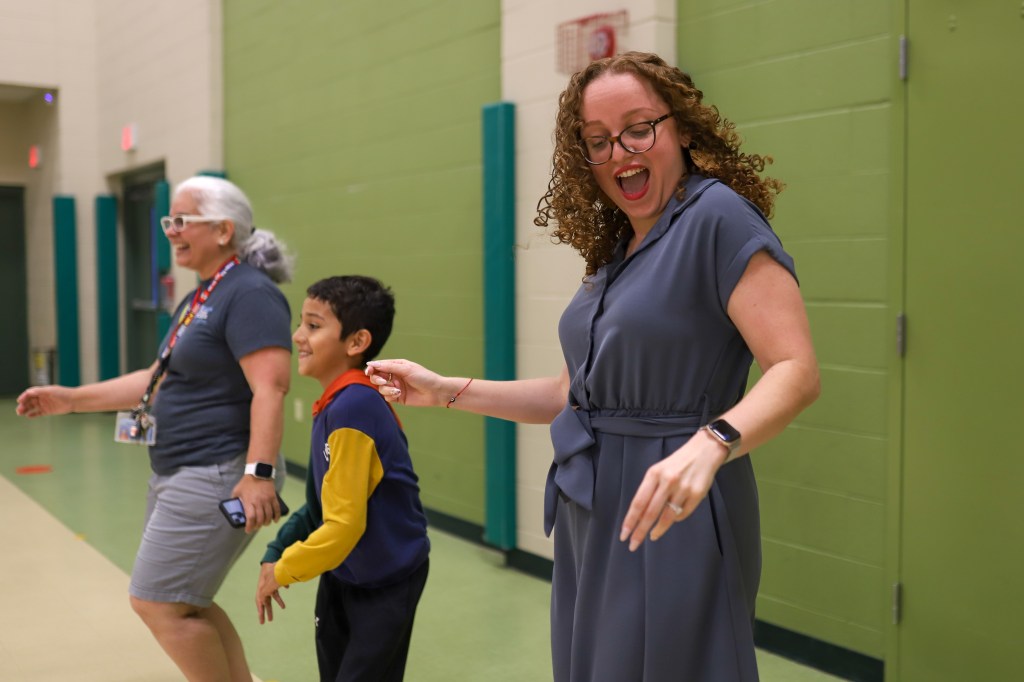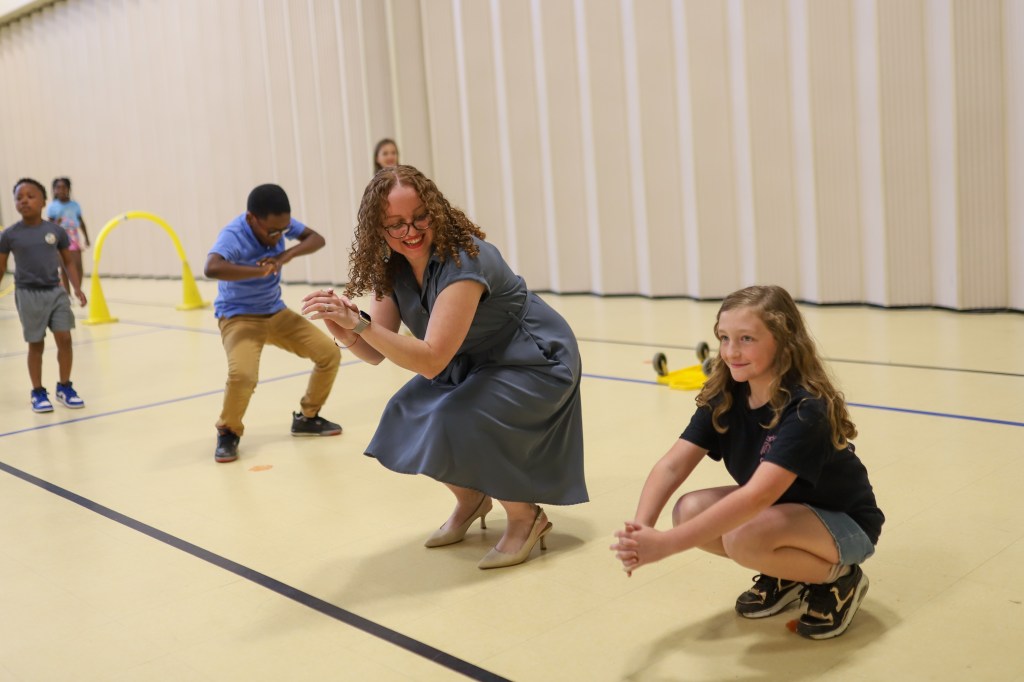“Belonging Is the Work”: Dr. Jasmine Fernández on Wraparound Student Supports
Dr. Jasmine Fernández, Chief of Student Supports, is working to ensure every student feels a true sense of belonging. “Student support is not an afterthought; it is the foundation of our commitment,” Dr. Fernández said. “When students feel seen, safe, and connected, they are better equipped to learn and thrive.”
Dr. Fernández traces her passion for student support to her own upbringing and early career in youth development. She proudly said her background shaped how she leads. “My work has always centered on closing gaps, meeting basic needs, and creating spaces where students know they belong.” That lens guides districtwide efforts to connect academics with whole-child supports such as physical, social, emotional, and mental health. “We recognize there are evolving needs that can get in the way of learning,” she added.
In Hamilton County Schools, wraparound support means aligning opportunities, resources, and services to needs so students and families can thrive. That can look like helping students find stability at home, connecting families with trusted partners or community resources, creating welcoming school environments, preparing staff to meet diverse needs, and tracking data to make sure no child falls through the cracks.
Housing Instability
For many Hamilton County students, the greatest barriers to learning are not academic, but the challenges they face at home and in their communities. That can include help navigating foster care, addressing housing instability, or connecting families to mental-health services. The district has identified multiple students experiencing housing insecurity so far this academic year, and the number is expected to grow. For comparison, last school year, more than 1,600 students were identified as living in shelters, hotels, doubled up, or in other temporary arrangements. “These are real needs for students, and our job is to remove barriers so learning is possible,” Dr. Fernández said.
Community Partnerships
The district partners with community organizations to extend care, while schools weave belonging into the daily student experience, together creating a stronger safety net. For example, at Washington Alternative School (Washington), the team collaborates with a substance-use prevention provider to build proactive skills and reduce suspensions. School counselors and social workers connect students and families to community partners for wraparound supports such as clothing, food, and utility assistance. The district also works closely with local coalitions and agencies to provide coordinated responses that help stabilize families facing housing or other basic needs challenges.
School Climate
Within schools, belonging is evident in everyday routines and rituals, such as greeting students at the door, setting clear school-wide expectations, and expanding mentoring opportunities. Washington and Hixson Middle School both run mentorship initiatives that match students with peers or trusted adults. Cultural celebration is another important pillar. Schools such as Clifton Hills and East Ridge Elementary have hosted events where families share food and traditions. Last year, at Ooltewah Middle School’s international festival, students created a bilingual promo video and choreographed their own performances. “Families told us they want intentional communication, flexible event times, and to see their culture reflected in school life.”
Training Personnel
The district has also expanded professional learning. More than 400 school administrators and on-site leadership participated in training on listening, belonging, demographic trends, and concrete strategies such as newcomer buddy systems, bilingual announcements, and strategies to support inclusive and welcoming classrooms. Dr. Fernández also noted the importance of clear safety protocols and ongoing coordination with local partners so families know schools are safe, welcoming spaces.
Data Driven and Student Centered
The Student Support team regularly reviews data on attendance, discipline, mental health referrals, bullying, and housing instability to guide interventions. “We want to be proactive, not reactive,” Dr. Fernández said. Outreach begins after just a few absences, with additional supports layered in as needed.
In conclusion, HCS offers a wide range of services from counseling and behavior support to climate and belonging initiatives coordinated with community partners. “Now more than ever, we recognize how vital it is to ensure students feel seen, connected, and affirmed” Dr. Fernández added. “Belonging isn’t abstract; it’s felt.” Her message to families is clear: “You belong in our schools. Your children belong. We see you, we value you, and we’re building with you.”

